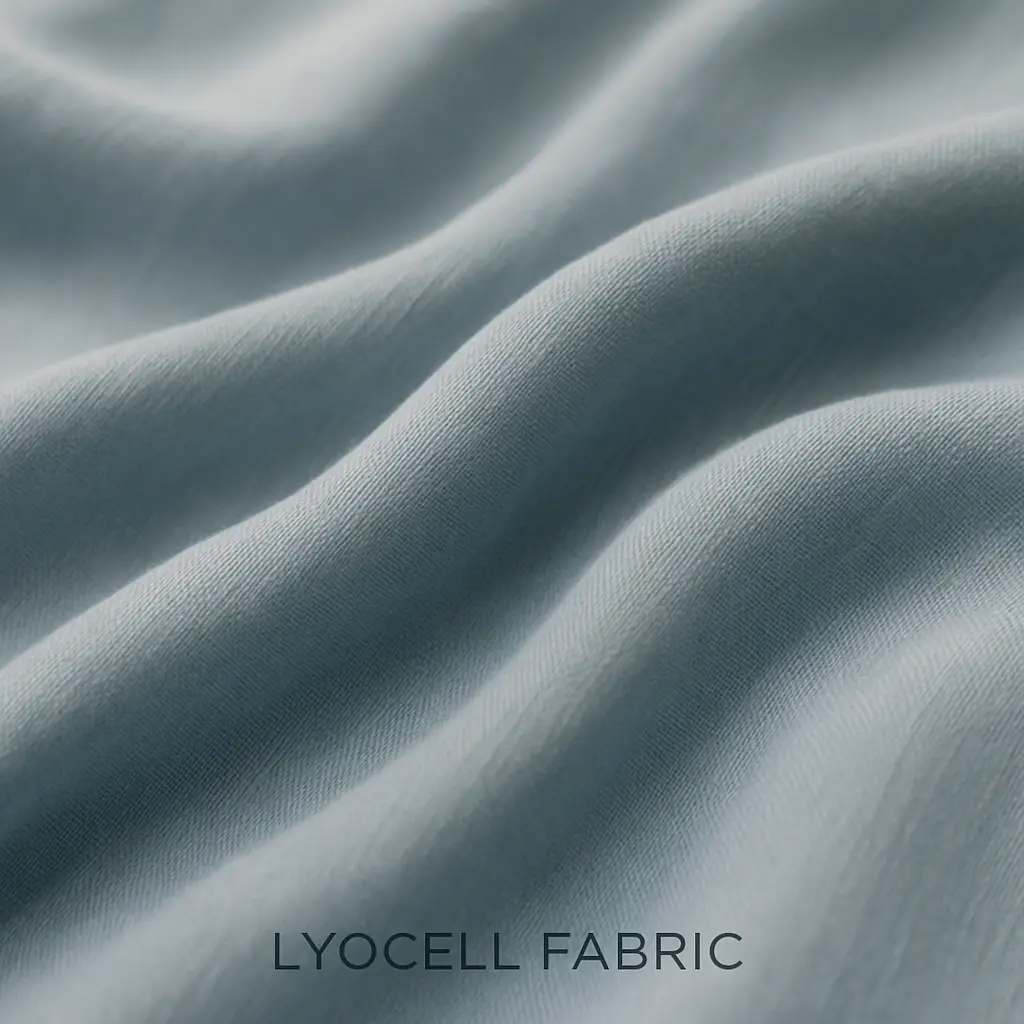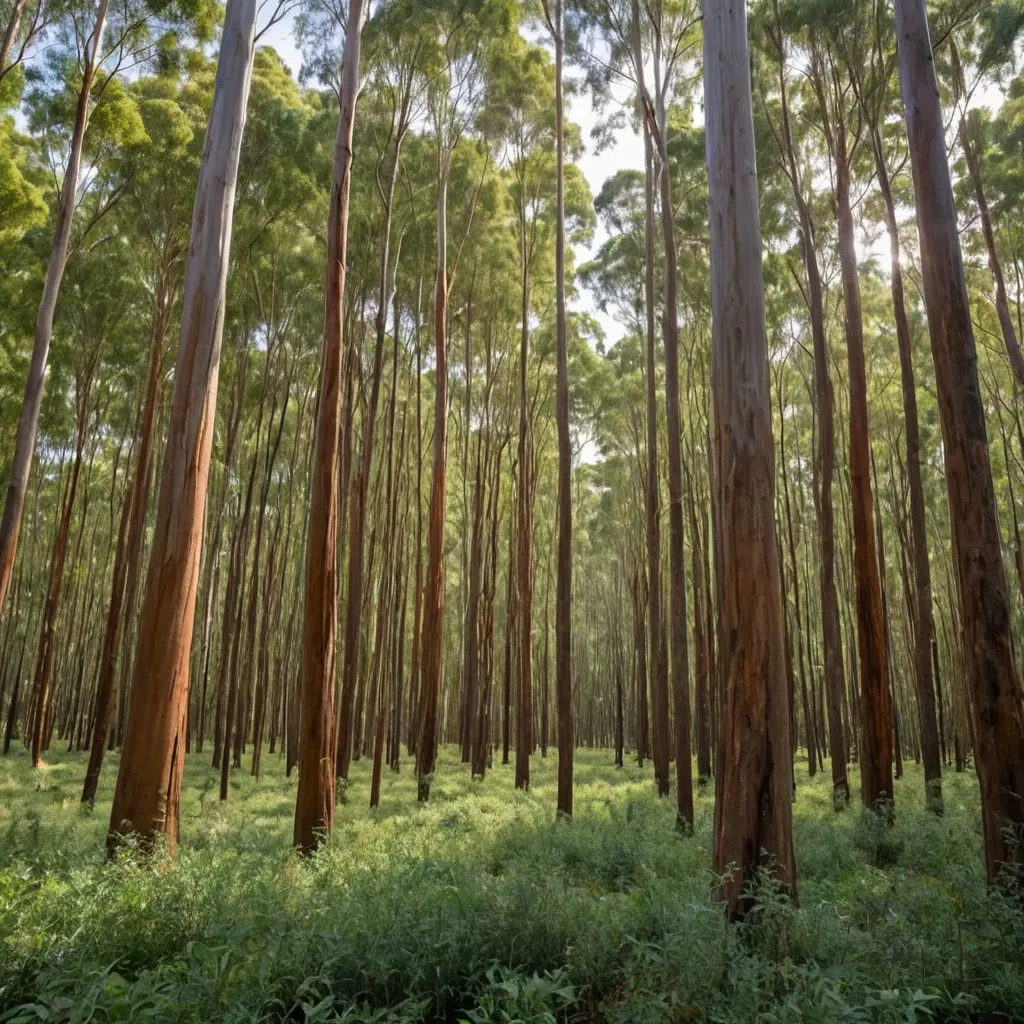In the evolving landscape of textile materials, Lyocell has emerged as a standout option for those seeking sustainability without compromising on quality. Known for its luxurious softness, impressive durability, and eco-friendly production, Lyocell is increasingly favored in a diverse array of applications, from high-end fashion to comfortable home textiles.
What Is Lyocell?
Lyocell is a regenerated cellulosic fiber, sometimes referred to as a semi-synthetic fiber, derived from cellulose. This cellulose is primarily sourced from the wood pulp of trees such as eucalyptus, beech, and spruce, which are often harvested from sustainably managed forests. A prominent and widely recognized brand of Lyocell is TENCEL™, produced by Lenzing AG. Unlike traditional viscose rayon, Lyocell’s manufacturing involves a more environmentally sound, closed-loop production process. This process recycles over 99% of the water and non-toxic solvents used, significantly minimizing environmental impact and waste, and results in a fiber that boasts superior strength, especially when wet.
Key Properties of Lyocell
- Softness and Comfort: Lyocell boasts an exceptionally smooth, silky texture that feels gentle against the skin, making it ideal for sensitive individuals and luxurious apparel.
- Moisture Management: Its excellent moisture-wicking capabilities draw perspiration away from the body, keeping the fabric dry and comfortable. This makes it highly suitable for activewear, undergarments, and bedding.
- Breathability: The inherent structure of the fiber allows for optimal airflow, enhancing comfort in various climates by helping to regulate body temperature.
- Strength and Durability: Lyocell is a strong fiber that maintains its integrity well, both when dry and wet, contributing to the longevity of the products made from it.
- Hypoallergenic: Due to its natural origin (wood cellulose) and the gentle processing involved, Lyocell is less likely to cause allergic reactions compared to some synthetic fibers.
- Excellent Drape: Lyocell fabrics hang beautifully, possessing an elegant flow and fluidity that enhances the design of garments.
- Biodegradability: Being derived from natural cellulose, Lyocell is biodegradable and compostable under appropriate industrial or home composting conditions, further underscoring its environmental credentials.
The Sustainable Production Process
The production of Lyocell involves dissolving wood pulp in a non-toxic amine oxide solvent called N-methylmorpholine N-oxide (NMMO). This cellulosic solution is then extruded through spinnerets to form fibers, which are subsequently washed, dried, and processed. The hallmark of this process is its “closed-loop” nature, where approximately 99.5% of the NMMO solvent is recovered, purified, and reused, drastically reducing water usage and preventing harmful effluents.

Applications of Lyocell
Lyocell’s versatility and desirable properties lend themselves to a wide range of products:
- Apparel: Its comfort, drape, moisture management, and strength make it perfect for dresses, shirts, blouses, trousers, activewear, and even denim blends.
- Home Textiles: Used extensively for bedsheets, pillowcases, duvet covers, and curtains, where its softness, breathability, and smooth feel are highly valued.
- Medical Textiles: Its hypoallergenic nature and absorbency make it suitable for non-woven medical applications like bandages, surgical gowns, and hygiene products.
- Industrial Uses: Due to its strength, uniformity, and absorbency, Lyocell is also employed in specialized applications such as conveyor belts, specialty papers, and advanced filtration systems.
Care and Maintenance
Maintaining Lyocell products is generally straightforward, helping to preserve their quality and lifespan:
- Washing: Typically, machine wash on a gentle cycle with cool or lukewarm water and a mild detergent. It’s advisable to wash with similar colors. For delicate items, a mesh laundry bag can offer extra protection.
- Drying: Air drying is often preferred to best preserve the fabric’s integrity, color, and to minimize any potential for pilling. If using a tumble dryer, opt for a low heat setting and remove items promptly once dry.
- Ironing: If necessary, iron on a low to medium setting, ideally while the fabric is still slightly damp or by using a pressing cloth to protect the surface.
Conclusion
Lyocell fabric truly represents a harmonious blend of luxurious comfort, impressive durability, and significant environmental responsibility. Its unique combination of desirable properties, coupled with an innovative and sustainable production process, firmly positions it as a leading choice for contemporary textile applications. As the global demand for eco-conscious materials continues to surge, Lyocell stands out as a forward-thinking fabric that not only meets discerning consumer expectations for quality and performance but also champions a more sustainable and responsible future for the textile industry.


Leave a Reply